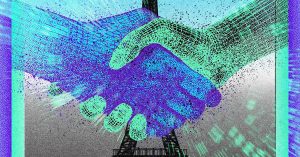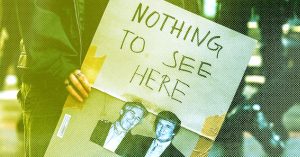Twitter, the social media platform officially known as X, appears to have deleted all images from the website that were posted between 2011 and 2014. Links that used Twitter’s native shortening service are also broken. It’s not immediately clear if this was an intentional act or an error, but whatever’s happening is causing concern among users who’ve been on the site for over a decade.
News about the photo deletions on Twitter first went viral on Saturday after user Tom Coates tweeted about it. I confirmed that my own photos on the platform from mid-2011 until 2014 have been deleted, and links no longer work, as you can see in the tweet below.
It appears that Twitter’s link-shortening domain—the new URL that Twitter generates so it can track user activity—is the likely culprit behind why images no longer display and links no longer work.
Twitter launched in 2006 but didn’t support native image uploads until the summer of 2011. Several image-hosting services sprung up to support Twitter, like TwitPic, but that service shut down in 2014 and many images from those early days are lost. But now it seems images that were posted to Twitter directly from 2011 to 2014 could be in danger as well, since they’re no longer loading on the site.
Some users on the Reddit forum Datahoarder, which tracks data preservation in the internet age, speculate that Twitter has broken something in an effort to migrate the site to X.com, which Twitter owner Elon Musk has held for a number of years. But that’s simply a logical guess at this point and hasn’t been confirmed. Another popular theory is that Twitter is attempting to save money on image hosting fees, another guess that hasn’t been confirmed by anyone officially at Twitter.
Twitter did not respond to questions emailed on Saturday. I’ll update this article if I hear back.
Twitter has experienced a number of radical changes since the company was purchased by Musk for $44 billion in October 2022. Musk’s first act was to fire thousands of people at the company, a move that likely contributed to the billionaire getting loudly booed at a Dave Chappelle show in San Francisco a short time later.
Musk also made dramatic changes to moderation of the site, declaring a kind of amnesty for many people who’d been previously banned. Musician Kanye West and neo-Nazi Nick Fuentes were both welcomed back before getting banned yet again for anti-semitic comments. But others, like anti-Muslim bigot Laura Loomer and political advisor Roger Stone, have been welcomed back and remained a loud presence on the site.
Former president Donald Trump was also very publicly welcomed back to Twitter by Musk, though Trump has opted instead to stay at Truth Social, a platform he launched in 2022.
Musk has become a lightning rod of controversy ever since he bought Twitter, opting to amplify some of the more extreme elements on the site. As just a couple of examples, Musk defended Dilbert cartoonist Scott Adams after he advocated for racial segregation and promoted a documentary by Matt Walsh, arguably the loudest anti-LGBT voice on social media.
Twitter also made the bizarre decision to reinstate an account that reportedly published child sexual abuse material. Musk personally announced the reinstatement of the account and legislators in Australia even grilled a Twitter exec about the decision recently. The executive said that some accounts may be sharing the child sex abuse images out of “outrage,” and wouldn’t necessarily be banned after multiple infractions. But it’s widely understood that sharing such material re-victimizes the child and only a zero tolerance approach should be tolerated.
Musk also challenged Meta CEO Mark Zuckerberg to a fight before making a number of excuses about his health, including a claim that he may need surgery. Musk has repeatedly threatened to just show up at Zuckerberg’s Palo Alto home, though Zuckerberg has said that if they fight he’d like it to be organized by professionals at an organization like UFC.
Twitter hired Linda Yaccarino from NBCUniversal in an attempt to calm advertisers who are worried about brand safety at the company, but her presence has been much lower profile than Musk, to say the least. For example, Musk decided to drastically limit the number of tweets a user could read over the July 4th weekend—a move the Atlantic compared to instituting a 12-item limit at Costco. But Yaccarino didn’t even acknowledge the hampering of her own site until days later.
Most recently, Musk announced Twitter would be removing the block function, a vital tool for stopping abuse and stalking on the site. That decision has been met with fierce backlash and nobody really knows if it will happen.
The deletion of photos could simply be an accident, and those old images may get restored at some point. But accidental or not, it’s safe to say that Twitter isn’t becoming any more stable as time goes on. With the amount of misinformation that’s overwhelmed the site since the fires in Maui, it’s clear the site is no longer a reliable source for news. And sadly there’s currently no popular global alternative that can replace what was once an important website.
Read the full article here








